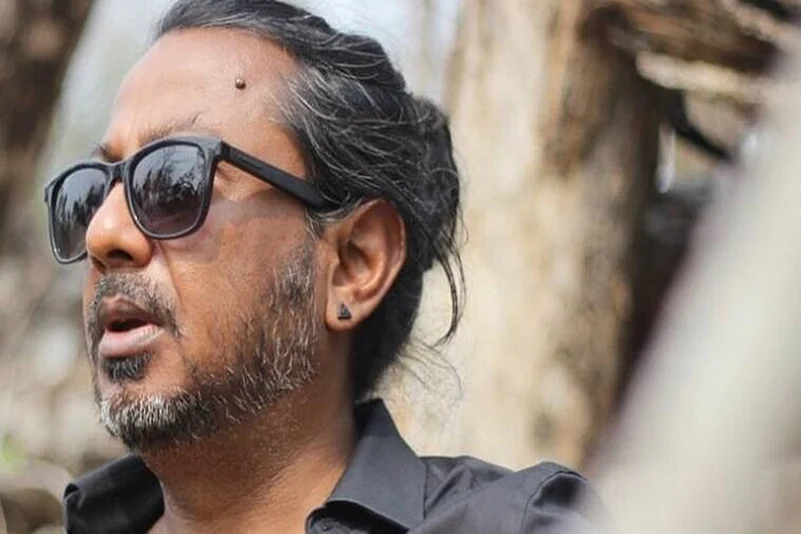Filmmaker Onir’s ‘We Are’ is a sequel to his National Award-winning 2011 film ‘I Am’. In an exclusive interview with Outlook’s Lachmi Deb Roy, he speaks about his film and how there is a little bit of ‘him’ in all the films that he has made on the LGBTQ community. He also discusses at length about the difficulties of making LGBTQ films mainstream. Excerpts:
How different is ‘We Are’ going to be from ‘I Am’?
When I did ‘I Am’, it was a world that was pre-decriminalisation of Section 377. And that was a film about identity crisis in different spaces, not just the LGBTQ community. But when I started doing ‘We Are’, the treatment was different because I did the film ten years after ‘I Am’. I thought it is time to make a film celebrating the Supreme Court verdict on Section 377 and this time I wanted to make all the four stories queer stories which talk about love and empowerment. It is going to be bright stories of love with a happy ending because I feel like a community, we need to see these stories on the queer love.
Advertisement
As a filmmaker, there was a need for me to grow in my treatment of filmmaking, so if you see ‘My Brother Nikhil’ it was about family acceptance. But with ‘We Are’ I wanted to tell stories of love. It is very important for us to tell our queer stories of positivity, otherwise, people generally want to talk about what the world wants to listen to. When I look at ‘Shub Mangal Saavdhan’, I wonder who these people are. I feel I don’t know these people and I am unable to relate to them. ‘We Are’ is essentially love stories inspired by real-life stories. We talk about challenges and the way they overcome those and the film ends with hope. In this film, there are only bright sides, no dark sides. It is mostly about our lives which not many people are talking about. I wanted to show that queer relationship is much beyond bodies and sex.
Advertisement
How much of ‘you’ are there in your films?
I think a lot because if you see in my previous films whether it is ‘I Am’ or ‘My Brother Nikhil’, there is a bit of me in every film. And especially when my films have got to do something with the queer community it becomes even closer to me. I have seen among friends’ people talk about their love life, their partners, but when it comes to me, I have hardly seen people asking me about my love life. When I did ‘My Brothers Nikhil’, I didn’t know how people would accept the film. It was like taking baby steps in accepting a gay character by our audience. So, I wanted to show the love between them and not just talk about sex. The physical aspect that I show in ‘We Are’ is all about love where sex is an extension of love.
Struggles of making a film on the LGBTQ community…
The biggest struggle is to be able to tell the stories. Why do I have to look for Canadian co-production? I am never able to recover the cost of my films. It is an exploitative space. I understand you can do ten of your ‘Lakshmi Bombs’, but it is difficult to do one ‘I Am’ or one ‘We are’ in a year. I don’t see anybody making an effort to empower queer voices. Everyone wants to be in the correct space, but they will not empower us to tell our stories. My question is why do I get recognised in Melbourne or Film Victoria? Why is it always outside the country that I get the recognition and not within the industry?
Advertisement
Making LGBTQ films that is mainstream…
To make an LGBTQ film which is mainstream is difficult. It is difficult to get the cast for the film and it is difficult to get finances. So, every step is difficult especially if you don’t know many people within the industry. There are hardly any films made on the LGBTQ community in India. Look at Oscars, they empower films on the LGBTQ community. Today why is ‘Funny Boy’ a Canadian Oscar entry? Outside India, it’s a conscious effort made to highlight the voices of the minorities.
How difficult was it for you to get actors for your films?
Advertisement
I always get the finest actors who are hungry for good roles. They just say ‘yes’ because of the script--be it Sanjay Suri, Manisha Koirala, Rahul Bose, or Juhi Chawla. If Sanjay Suri didn’t support ‘My Brother Nikhil’, it wouldn't have been possible for me to make the film. So, I am fortunate to be working with such people.




















